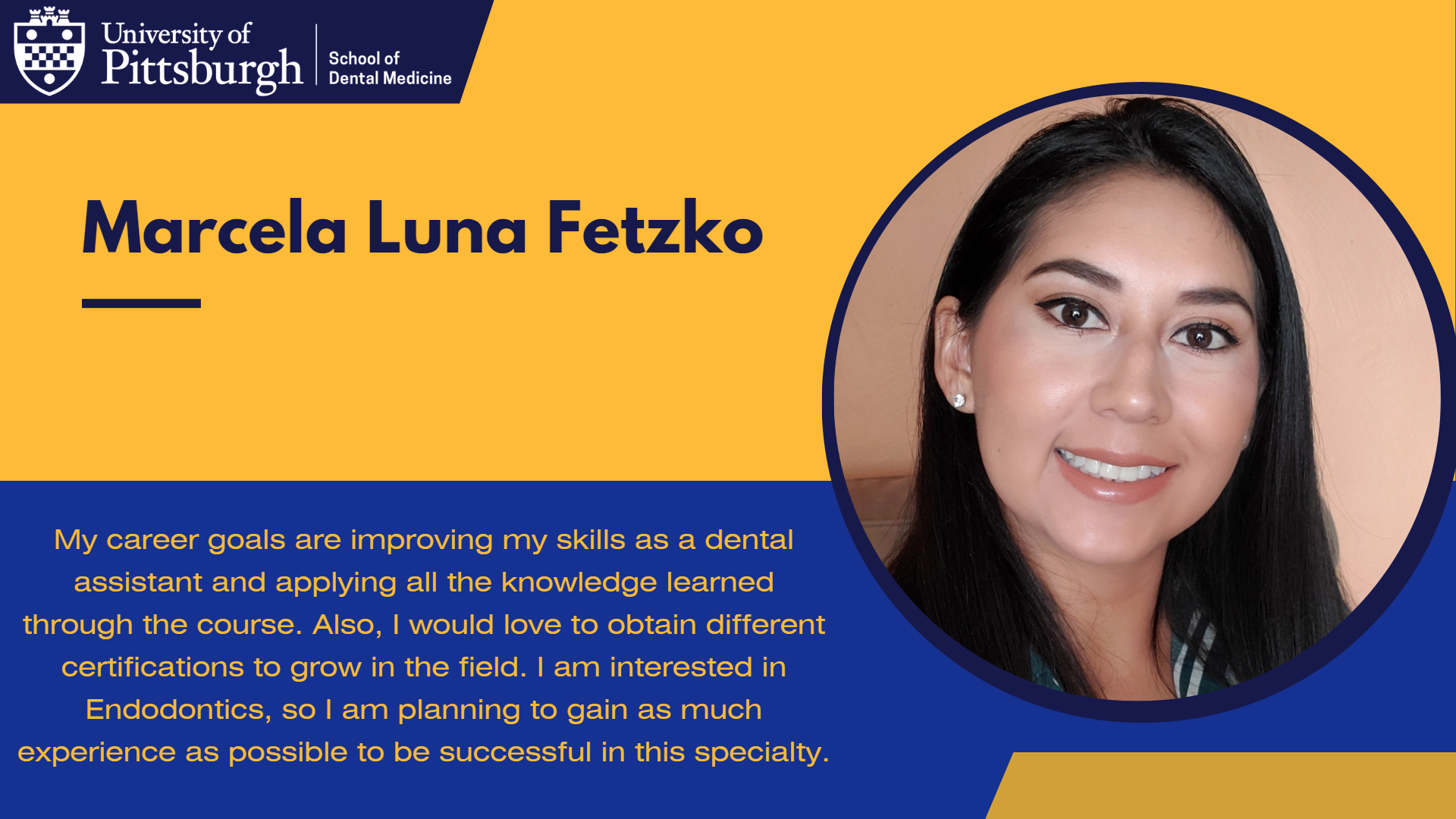By Megumi Barclay

Pitt’s School of Dental Medicine is taking an innovative approach to training dental assistants to meet the growing demand in that field.
Its accelerated four-month Dental Assistant Training Program (DATP) allows students to stay within their home communities, serving both the needs of the students and the clinical sites where they may practice.
The program, which started last spring with just six students, celebrated its second cohort of 30 students with a virtual graduation ceremony on Nov. 16, 2024. Each graduate shared a photo and personal quote, showcased individually during the event. (Examples displayed here were submitted with participants’ consent.)
The program is expected to keep expanding with enrollment in the next session, beginning Jan. 27, 2025. Future cohorts aim to address workforce shortages by training dental assistants to serve communities in the tri-state area and beyond.
“This program is already providing support to underserved dental practices in rural areas, where the shortage of well-trained staff members has been most devastating,” said Marnie Oakley, dean of the School of Dental Medicine.
The need for skilled dental assistants across the country is growing. According to the U.S. Bureau of Labor Statistics, employment of dental assistants is projected to grow by 8% from 2021 to 2031—faster than the average for all occupations. Pitt’s program offers a mixture of online coursework, online simulation labs, and hands-on clinical experiences to equip trainees with the knowledge and confidence to thrive in the dental field.
DATP offers much flexibility, making it appealing to nontraditional students. The first three months consist of guided online coursework, enabling trainees to balance their studies with work or other commitments. This phase also includes three days of job shadowing, where trainees apply their online learning in real-world settings. The final three weeks are spent at clinical sites chosen by the trainees, allowing them to gain practical experience close to home and minimize travel expenses.

The program’s structure benefits both trainees and participating clinical sites. Students receive hands-on training in their local communities, improving their career readiness while addressing staffing shortages. Many clinical sites have even retained graduates as employees.
DATP emphasizes both technical and interpersonal competencies, covering essential areas such as infection prevention, radiographic techniques, patient care and administrative responsibilities. The curriculum includes topics like dental anatomy, oral health and assisting in comprehensive care. By the end of the program, trainees are prepared to sit for the Radiation Health and Safety certification offered through the Dental Assisting National Board, an essential credential for advancing in the field.
Graduates leave the program equipped to begin entry-level roles as dental assistants, with opportunities to further their careers by pursuing additional certifications or education. Student feedback from the first two cohorts highlights the program's flexibility and effectiveness, with participants feeling well prepared to step into entry-level roles and, eventually, greater responsibility as they continue learning.
DATP’s instructors, Maria Brasili and Paulette Dietz, are driving efforts to expand the program’s reach. Their goals include boosting enrollment, enhancing online learning platforms and forging stronger connections with clinical sites for trainee support. By visiting high schools and promoting dental assisting as a rewarding career, they aim to inspire more students to enter the field. Additionally, they are working to secure funding to ensure student success.
Click here to learn more about the program.

